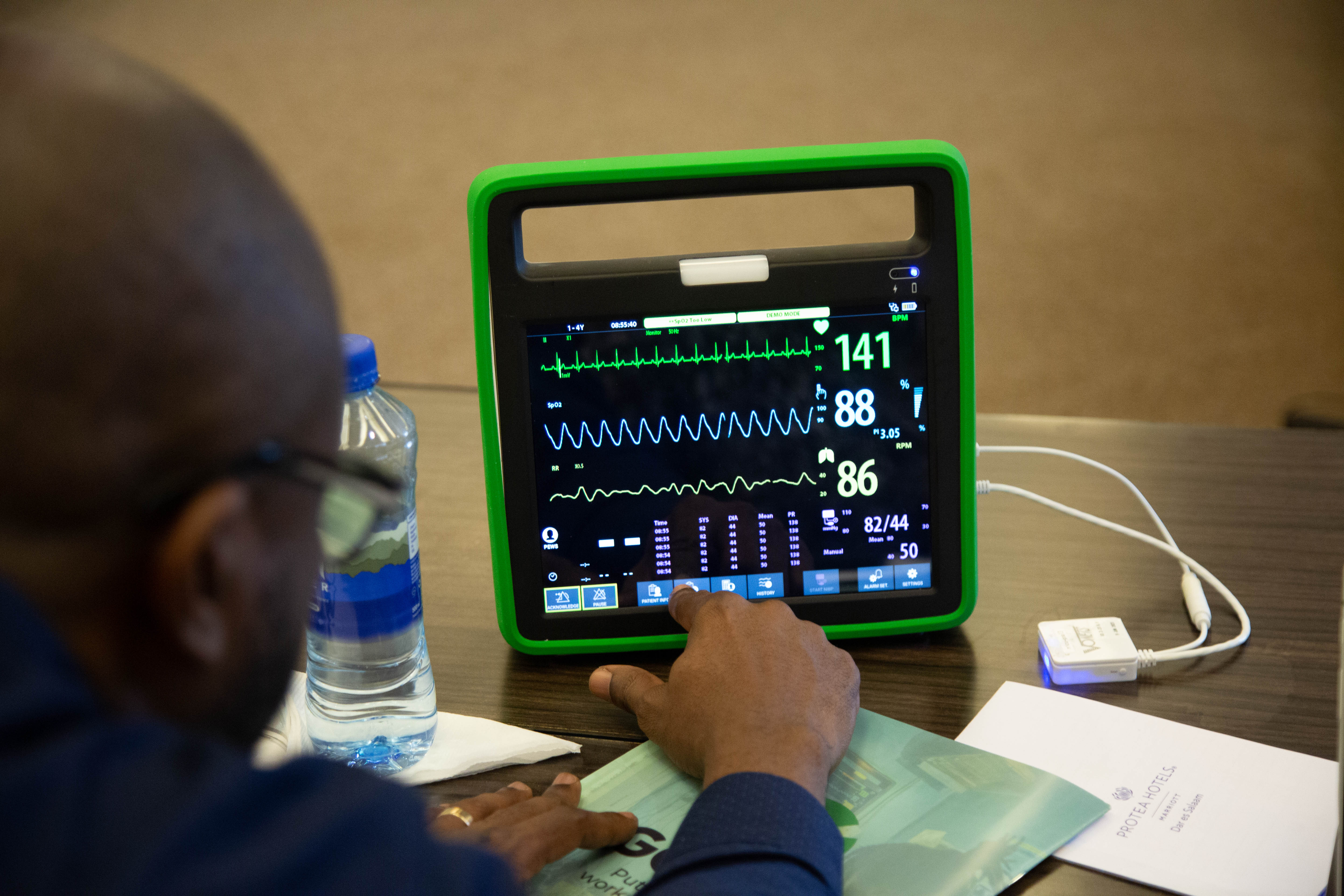
DIGITAL HEALTH: Stakeholders explore potential of the IMPALA system

Ifakara Health Institute, in collaboration with Goal 3, today hosted a stakeholders’ meeting in Dar es Salaam to evaluate the compatibility of the IMPALA monitoring system with the Tanzanian context and its potential contribution to reducing mortality rates.
Ifakara and IMPALA
The Pro-Africa project, led by Ifakara Senior Research Scientist Donat Shamba, has been implementing the IMPALA system since April 2023. This initiative aims to prevent African newborn and children's deaths through proactive patient management.
IHI, in collaboration with Sengerema Hospital in Mwanza, has adopted the IMPALA system to address challenges related to staff shortages and insufficient medical equipment.
>> Explore more about this study here
Insights into child health in Tanzania
Dr. Felix Bundala, Assistant Director of Newborn, Child, and Adolescent Health in the Ministry of Health, provided a comprehensive overview of the current state of neonatal and child health in Tanzania. He discussed the existing strategies, identified gaps, and outlined areas for expansion.
Dr. Bundala emphasized the need for addressing workforce skills, equipment deficiencies, data capture improvements, financial considerations, and enhancing leadership and governance. He underscored the importance of a comprehensive strategy to save newborns, acknowledging both achievements and areas requiring further attention.
Goal 3 and the IMPALA System
Dr. Niek Versteegde, founder and CEO of Goal 3, presented the IMPALA system as an all-round solution designed for sustainability within the low-income settings. He stated that “The IMPALA monitoring device and software have a user-friendly design and are durable in resource-limited settings.” The device offers vital signs monitoring, while the software provides decision support and data collection capabilities.
Dr. Versteegde stressed the significance of leveraging data for continuous improvement, by stating “the whole system is a data management system built up from the ground level, designed from the clinician’s perspective, making real time data available at the patient’s bedside, making it easier for clinicians to save lives”
>> Learn more about the IMPALA system here
Interactive session
The interactive session aimed to identify synergies, facilitators, barriers, concerns, and risks for the introduction and scale-up of the IMPALA in Tanzania. Stakeholders witnessed a demonstration of the device and software.
Dr. Versteegden highlighted the positive impact reported by health workers in Sengerema in Tanzania and Malawi, where this system has been introduced stating that “health workers reported a reduction in workload.”
Experiences from Sengerema
Dr. Caroline Mtani from Sengerema shared insights from their experience with the IMPALA system over a three-month period. While noting the system's ease of use, she emphasized the need for additional training to maximize its benefits.
Dr. Mtani reported a notable reduction in newborn deaths, attributing it to various interventions, including the IMPALA system.
Scaling IMPALA
Stakeholders attempted to answer the question of whether the system should be scaled up to more health facilities from the success experienced in Sengerema. They collectively recognized the potential of the IMPALA system to transform neonatal and pediatric care, with a consensus that it should complement existing government interventions while ensuring compatibility with current hospital devices.
Ifakara scientist and pediatrician Dr. Georgina Msemo moved a vote of thanks to close the meeting by emphasizing the need for open-mindedness in embracing new technology in saving the lives of the most vulnerable, our children.
The stakeholders present at the meeting comprised a diverse group including government officials from the Ministry of Health (MOH) and the President's Office, Regional Administration and Local Government (PO-RALG). Additionally, technical associations, implementing partners, representatives from Mwanza, and the IHI project team were actively engaged.
